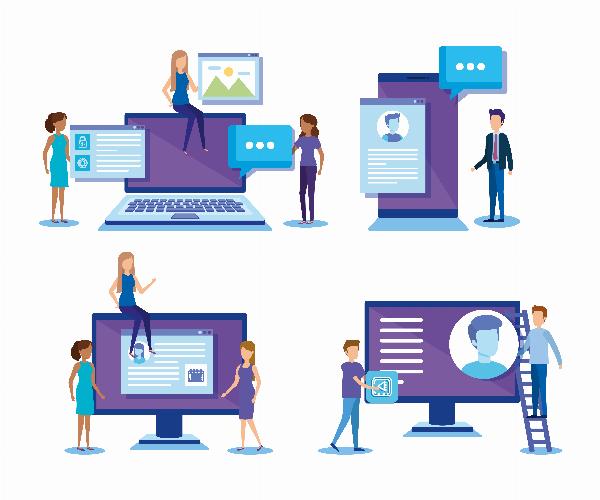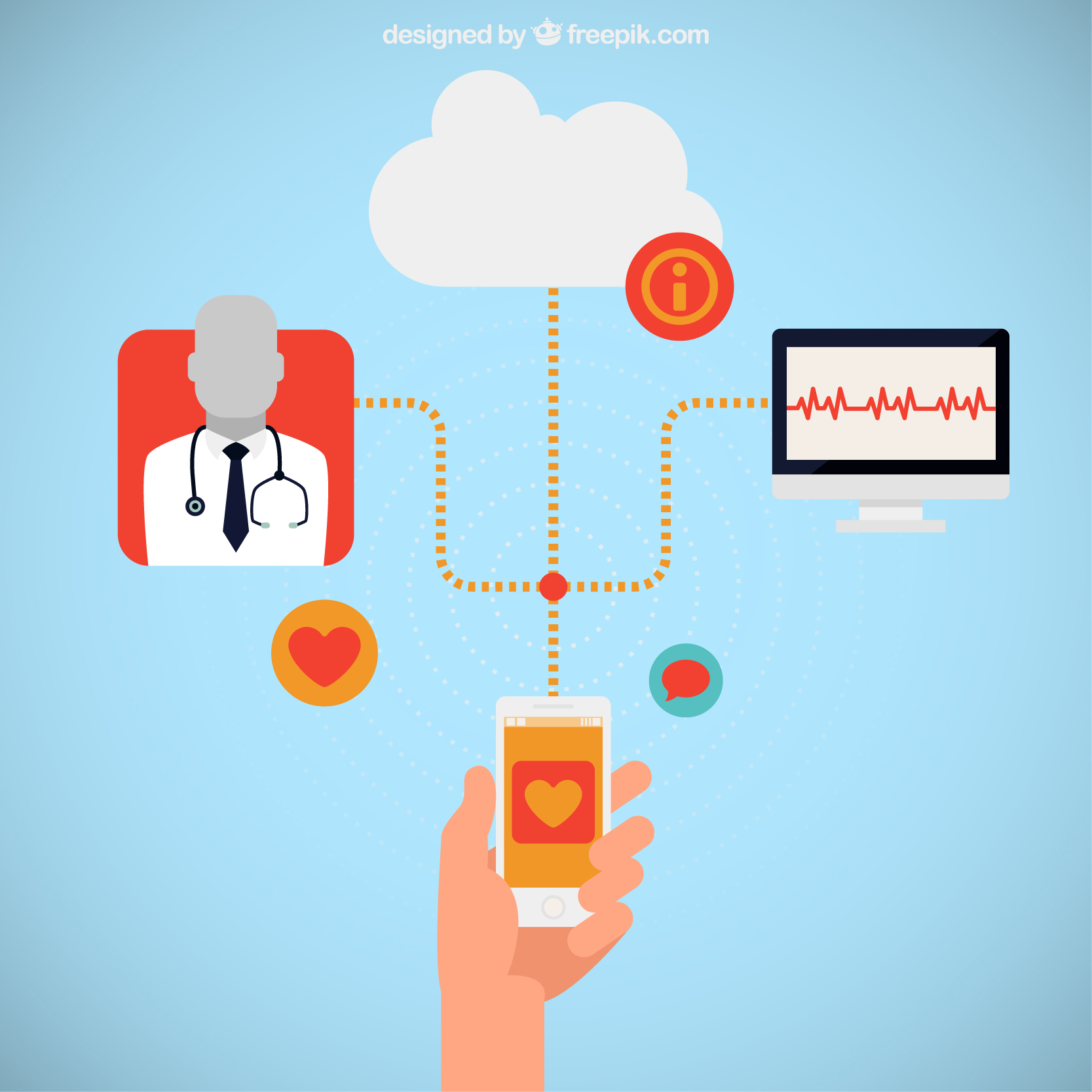Data Analytics and Business Intelligence: Unleashing Insights in Healthcare Software Development

Strong 8k brings an ultra-HD IPTV experience to your living room and your pocket.
Introduction:
In the dynamic landscape of healthcare, the need for actionable insights has never been more critical. As healthcare organizations strive to enhance patient outcomes, optimize operational efficiency, and make informed decisions, the integration of data analytics and business intelligence (BI) into healthcare software development has emerged as a game-changer. This blog explores the transformative power of data analytics and BI, shedding light on how these technologies are unleashing valuable insights in the realm of healthcare software development.
Understanding Data Analytics and Business Intelligence in Healthcare:
Before delving into their impact, it's essential to understand the concepts of data analytics and business intelligence in the context of healthcare.
Data Analytics:
Data analytics involves the exploration, interpretation, and visualization of vast datasets to uncover meaningful patterns, correlations, and trends. In healthcare, this encompasses the analysis of clinical data, patient records, operational metrics, and more to derive actionable insights for improving patient care and operational processes.
Business Intelligence:
Business Intelligence focuses on the transformation of raw data into actionable intelligence to support strategic decision-making. In healthcare, BI involves the collection, analysis, and presentation of data to guide executives, managers, and other stakeholders in making informed decisions for the overall betterment of the organization.
The Role of Data Analytics and BI in Healthcare Software Development:
Enhancing Patient Care:
Data analytics plays a crucial role in personalized medicine by analyzing patient data to identify patterns and predict outcomes. Healthcare software that incorporates analytics can provide physicians with real-time insights, enabling personalized treatment plans, predicting disease progression, and ultimately improving patient outcomes.
Optimizing Operational Efficiency:
BI tools are instrumental in optimizing operational processes within healthcare organizations. From resource allocation and staff management to inventory control, BI-driven healthcare software helps identify inefficiencies, streamline workflows, and allocate resources more effectively.
Predictive Analytics for Disease Prevention:
By analyzing historical patient data, healthcare software with predictive analytics capabilities can help in identifying populations at risk for certain diseases. This proactive approach allows healthcare providers to implement preventive measures, reducing the overall burden on the healthcare system.
Supercharge your business decisions with our Predictive Analytics Solutions – turning data into insights for smarter strategies and unparalleled success. Get started today!
Financial Performance Analysis:
Business Intelligence in healthcare software aids in financial analysis by providing insights into revenue cycles, billing trends, and reimbursement patterns. This empowers healthcare organizations to make strategic financial decisions, optimize revenue streams, and ensure long-term financial sustainability.
Use Cases and Applications:
Clinical Decision Support Systems:
Healthcare software with embedded analytics serves as a valuable tool for clinicians by providing real-time decision support. From diagnostic assistance to treatment recommendations, these systems leverage data analytics to enhance clinical decision-making and improve patient care.
Population Health Management:
BI tools are pivotal in population health management by aggregating and analyzing data from diverse sources. Healthcare software utilizing BI can identify trends in health outcomes, enabling targeted interventions for specific patient populations to improve overall community health.
Remote Patient Monitoring:
Data analytics in healthcare software is instrumental in remote patient monitoring. By continuously analyzing data from wearable devices and other remote monitoring tools, healthcare providers can detect early warning signs, personalize care plans, and reduce hospital readmissions.
Empower healthcare with our Remote Patient Monitoring App Development – Transform patient care, enhance engagement, and bring healthcare to the palm of their hands
Operational Dashboards:
BI-driven operational dashboards provide healthcare administrators with a comprehensive view of key performance indicators (KPIs). From patient throughput to resource utilization, these dashboards facilitate quick decision-making and enable proactive management of healthcare facilities.
Challenges and Considerations:
Data Security and Privacy:
The sensitive nature of healthcare data necessitates robust security measures. Healthcare software developers must prioritize data encryption, access controls, and compliance with privacy regulations such as the Health Insurance Portability and Accountability Act (HIPAA).
Interoperability:
Healthcare organizations often use a variety of software systems. Ensuring interoperability between these systems is essential for seamless data flow. BI tools integrated into healthcare software must be capable of interfacing with Electronic Health Records (EHR), lab systems, and other data sources.
Unlock seamless collaboration and elevate patient care with Healthcare Interoperability – Get in touch to bridge the gaps and enhance healthcare connectivity!
Skill Set and Training:
Successful implementation of data analytics and BI in healthcare software requires personnel with the necessary skills. Healthcare organizations need to invest in training staff or recruiting professionals with expertise in data analytics, BI, and healthcare domain knowledge.
Ethical Use of Data:
The ethical use of patient data is a paramount consideration. Healthcare software developers must adhere to ethical guidelines and regulations, ensuring that data is used responsibly, and patient privacy is maintained.
Benefits of Integrating Data Analytics and BI into Healthcare Software:
Improved Clinical Outcomes:
By providing clinicians with data-driven insights, healthcare software contributes to improved clinical outcomes. Timely access to relevant information enables better-informed decisions, leading to more accurate diagnoses and personalized treatment plans.
Enhanced Patient Engagement:
Healthcare software incorporating BI tools can offer patients access to their own health data. This transparency fosters patient engagement, empowering individuals to actively participate in their healthcare journey and make informed decisions about their well-being.
Cost Savings:
BI-driven healthcare software helps identify inefficiencies and areas for cost reduction. By optimizing resource allocation and streamlining processes, organizations can achieve significant cost savings without compromising patient care.
Strategic Decision-Making:
BI tools provide healthcare executives and administrators with a holistic view of organizational performance. Informed by data analytics, strategic decisions can be made to improve overall efficiency, quality of care, and financial performance.
Future Trends and Possibilities:
AI and Machine Learning Integration:
The integration of AI and machine learning algorithms into healthcare software will enhance the predictive capabilities of data analytics. This could lead to more accurate forecasting of disease outbreaks, personalized treatment recommendations, and improved risk stratification.
Blockchain for Data Security:
Blockchain technology has the potential to address data security concerns in healthcare. By providing a secure and transparent ledger for storing and sharing healthcare data, blockchain can enhance trust and security in healthcare software systems.
Real-Time Analytics:
As technology advances, the emphasis on real-time analytics in healthcare software will grow. This will enable healthcare professionals to access up-to-the-minute information, fostering quicker decision-making and more timely interventions.
Wearable Technology Integration:
The integration of data from wearable devices into healthcare software will continue to rise. This data, combined with analytics, offers a comprehensive view of patients' daily activities, vital signs, and overall health, enabling more personalized and proactive healthcare.
Conclusion:
In the ever-evolving landscape of healthcare, the integration of data analytics and business intelligence into software development is reshaping the way healthcare is delivered and managed. The ability to derive actionable insights from vast amounts of data empowers healthcare professionals, administrators, and patients alike. As healthcare software developers continue to harness the power of data analytics and BI, the industry stands on the brink of a new era—one characterized by personalized medicine, operational efficiency, and data-driven decision-making. By navigating the complexities, addressing challenges, and staying abreast of emerging trends, the future of healthcare software development holds unprecedented possibilities for improving patient outcomes and transforming the healthcare experience. The journey has just begun, and the potential for positive impact is boundless.
Note: IndiBlogHub features both user-submitted and editorial content. We do not verify third-party contributions. Read our Disclaimer and Privacy Policyfor details.





